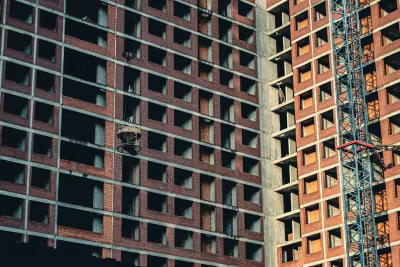In the dynamic landscape of residential real estate transactions, honesty and transparency are paramount. However, despite the best intentions, instances arise where sellers fail to disclose home defects to prospective buyers. Such omissions can lead to significant legal ramifications, with implications for both sellers and real estate professionals involved in the transaction. In Colorado, the laws governing the failure to disclosure home defects are designed to protect buyers and ensure fair dealings in real estate transactions. This article aims to provide an in-depth understanding of legal liability for the failure to disclose known property defects in the sale of residential real estate in Colorado.
Understanding Disclosure Obligations
Colorado law imposes a duty on sellers to disclose known material defects in residential real estate. In re Gattis v. McNutt, 2013 COA 145, ¶2 Material defects refer to issues that could substantially affect the value or desirability of the property and may include structural problems, water damage, issues with electrical or plumbing systems, presence of hazardous materials, or any other condition that could impact the buyer's decision to purchase the property.
The Colorado Real Estate Commission also provides a standard form known as the Seller's Property Disclosure form, which sellers are required to complete and provide to potential buyers. This form serves as a comprehensive tool for disclosing known defects and is an essential component of the real estate transaction process.
Legal Ramifications for Failure to Disclose Home Defects
Failure to disclose home defects in residential real estate can have serious legal consequences for sellers. Under Colorado law, sellers can be held liable for nondisclosure if it is determined that they had knowledge of the defect and intentionally chose not to disclose it to the buyer. Additionally, even if the seller was unaware of the defect, they can still be held liable if the defect was discoverable through a reasonable inspection.
Buyers who discover undisclosed defects after purchasing a property may have legal recourse to seek remedies such as rescission of the contract, monetary damages, or specific performance. In cases where the seller's nondisclosure amounts to fraud or misrepresentation, punitive damages may also be awarded.
Liability of Real Estate Professionals
In addition to sellers, real estate agents and brokers involved in the transaction can also face liability for failure to disclose home defects. Real estate professionals have a duty to exercise reasonable care and diligence in representing their clients' interests, which includes ensuring full disclosure of material defects.
Real estate professionals who are aware of undisclosed defects or who should have reasonably been aware of such defects but fail to disclose them to the buyer may be held liable for negligence or breach of fiduciary duty. Baumgarten v. Coppage, 15 P.3d 304, 307 (Colo. App. 2000). This can result in professional disciplinary actions, civil liability, and damage to their reputation and credibility within the industry.
Mitigating Risk and Ensuring Compliance
To mitigate the risk of legal liability for failure to disclose property defects, sellers and real estate professionals should take proactive measures to ensure compliance with Colorado disclosure laws. This includes:
Thoroughly inspecting the property for any known defects and disclosing them to potential buyers.
Providing complete and accurate information on the Seller's Property Disclosure form.
Encouraging buyers to conduct their own inspections and addressing any concerns or questions they may have.
Seeking legal guidance and advice when uncertain about disclosure obligations or the presence of potential defects.
Maintaining clear and transparent communication with all parties involved in the transaction.
Conclusion
The failure to disclose home defects in the sale of residential real estate can lead to significant legal and financial consequences for sellers and real estate professionals alike. In Colorado, the laws governing disclosure obligations are designed to protect buyers and promote fair and transparent real estate transactions. By understanding and adhering to these laws, sellers and real estate professionals can mitigate the risk of liability and ensure a smoother and more ethical transaction process for all parties involved.
Have Questions About Consumer Protection?
Our experienced construction defect attorneys are here to help. Schedule a free 15-minute screening call to discuss your situation.




